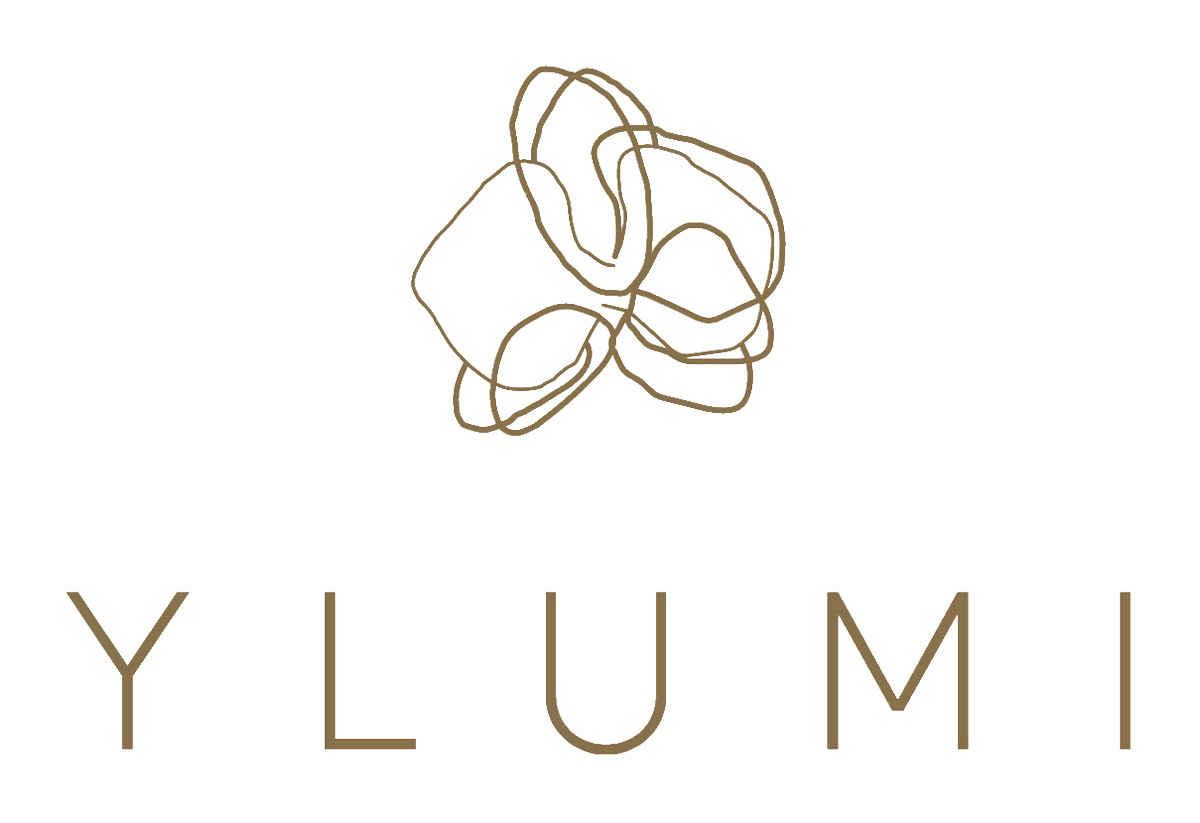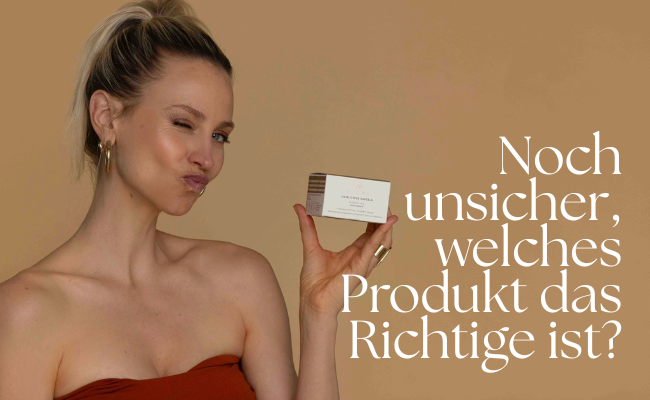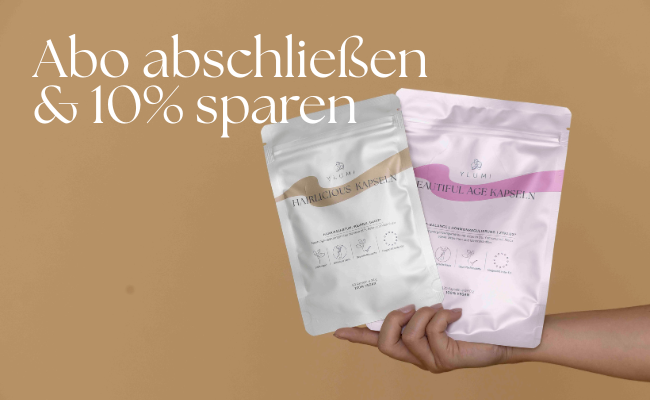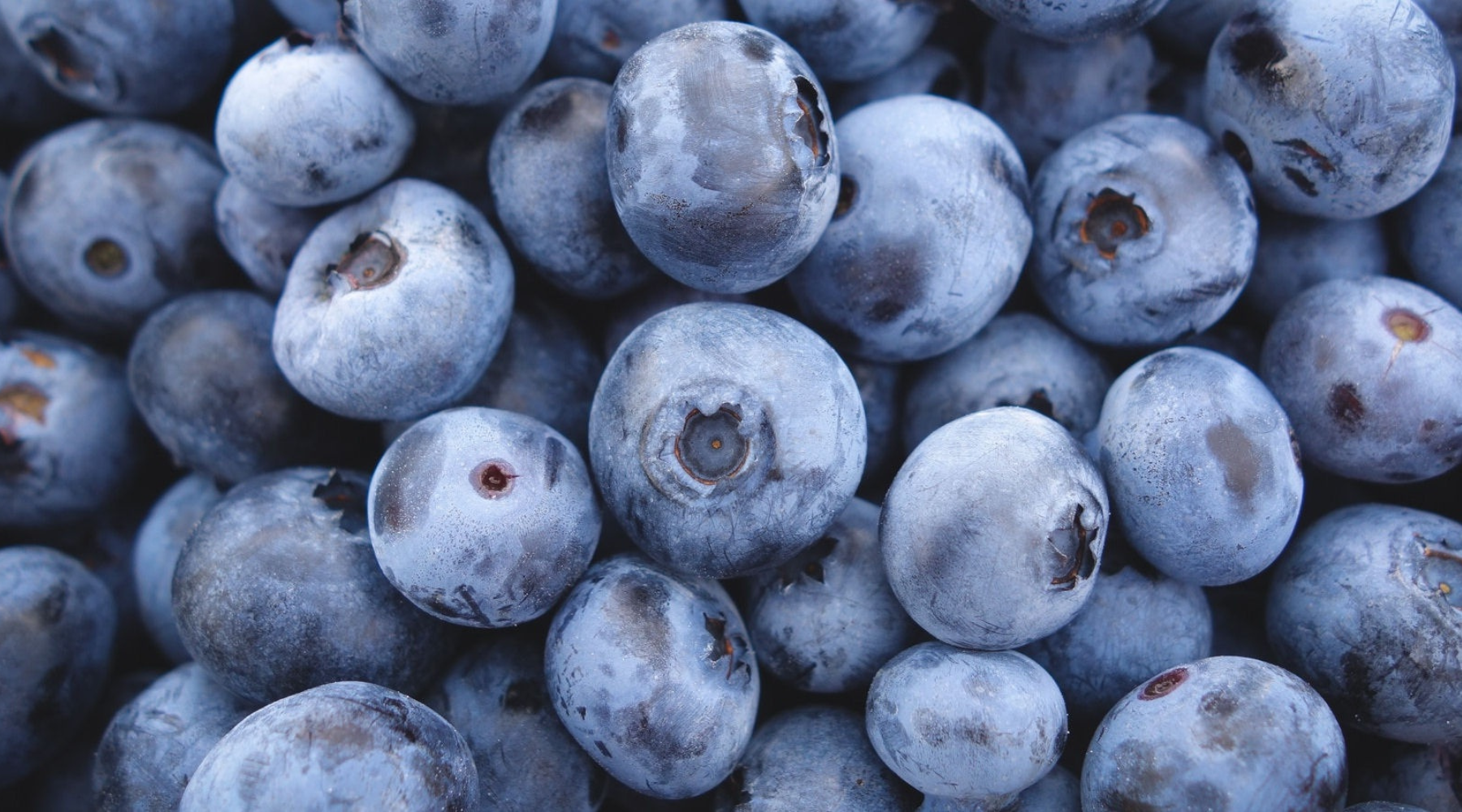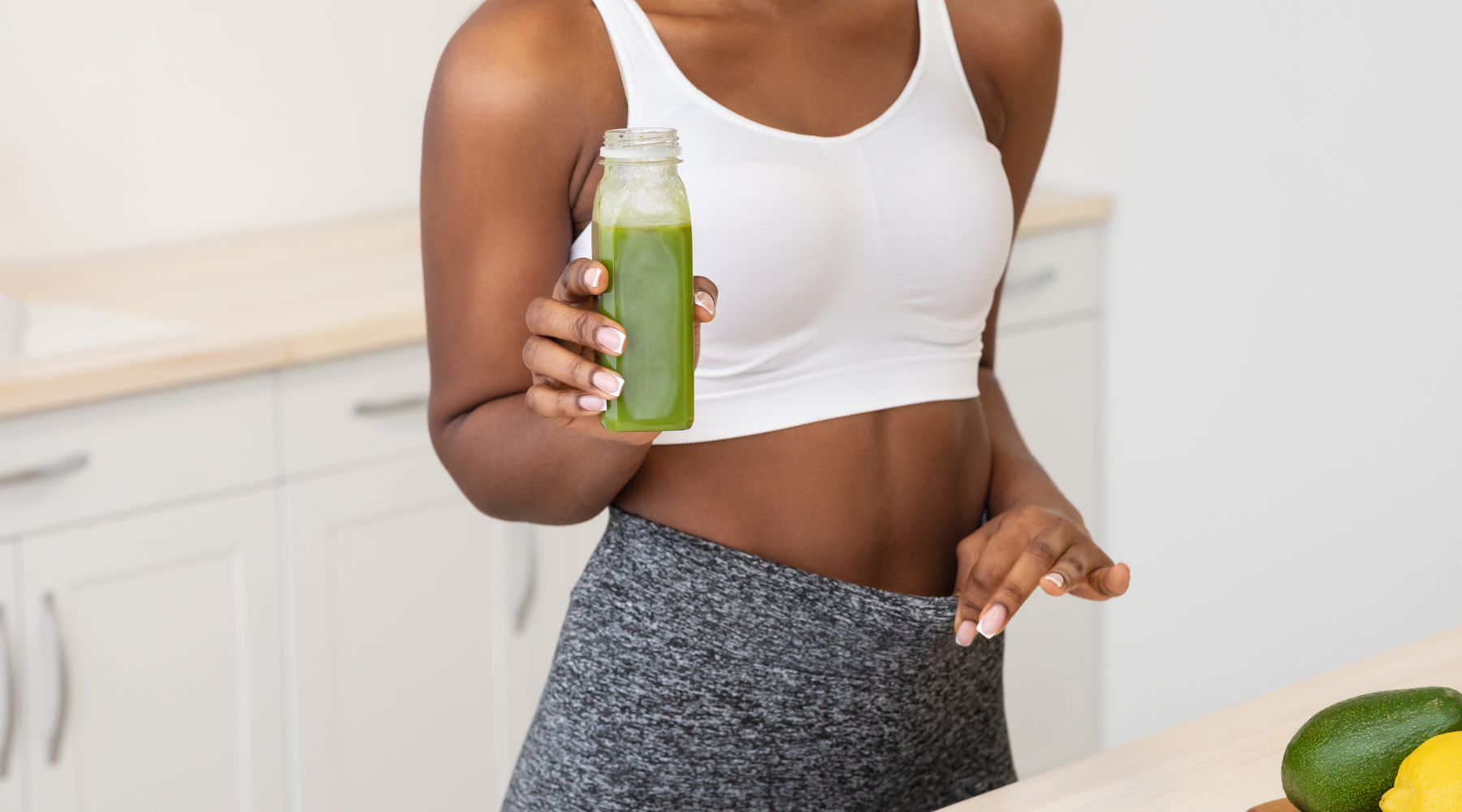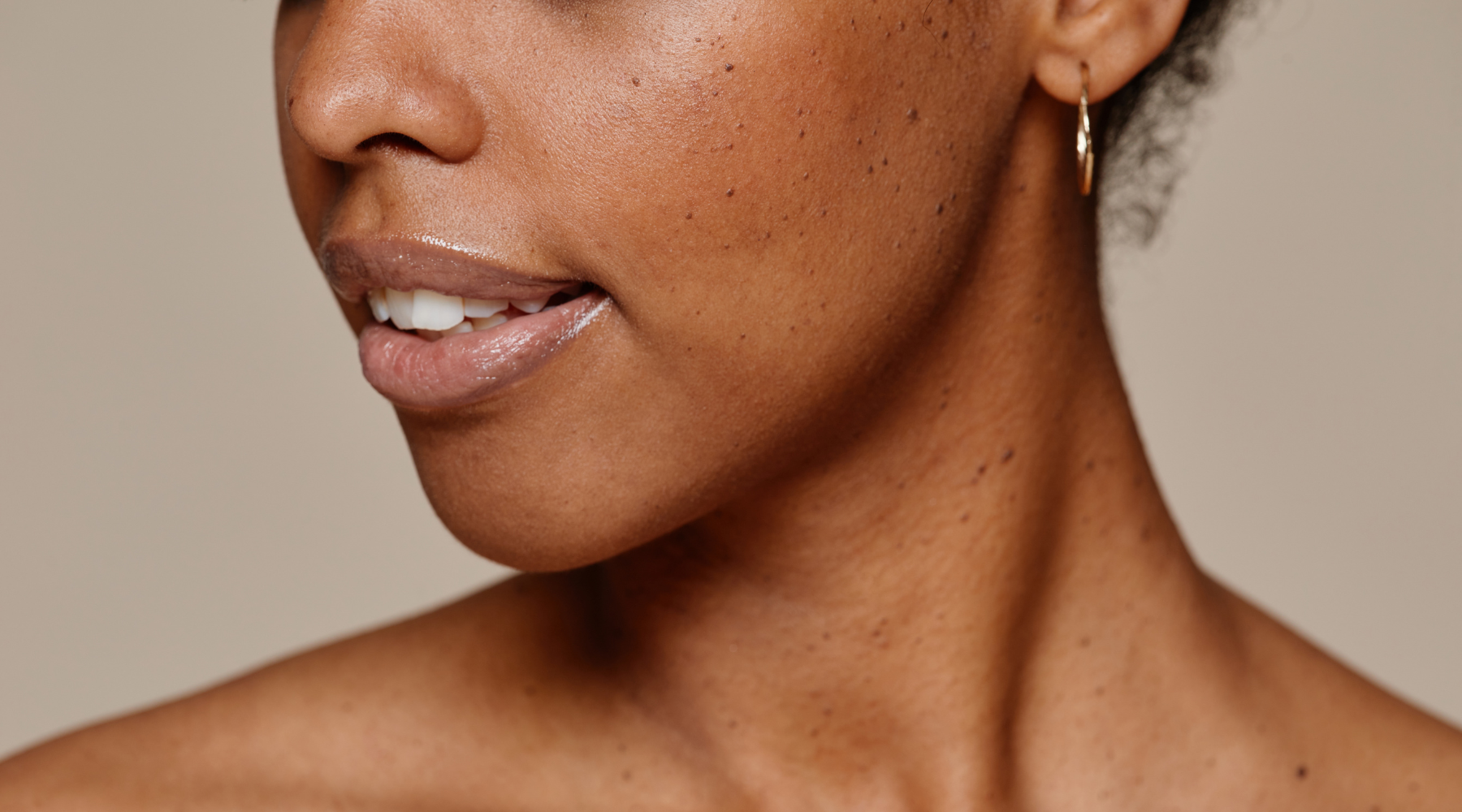
ACNE - THIS HELPS AGAINST IMPURE SKIN
Our skin is our largest organ and more than just a showcase—it's not without reason that it's also called the "mirror of the soul." Its condition is highly individual and says a lot about how we live and what we subject it to. We all struggle with pimples and blackheads from time to time, but chronic skin diseases, depending on their severity and location, can have a significant impact on the quality of life and health of those affected.
Acne is one of the most common skin diseases worldwide. Especially during puberty, adolescents struggle with skin blemishes triggered by hormonal changes, which can quickly lead to inflammation, severe pimples, and pustules, often causing significant suffering. But even in adulthood, people struggle with acne, which can have a wide variety of causes.
But what happens with skin conditions like acne? In this article, we'd like to show you the different types of acne, their possible causes, and how you can find relief with a targeted diet.
Contents
What is acne?
Acne is the name given to a skin condition that primarily occurs during puberty. According to studies*, around 85 percent of the population is affected by these severe skin blemishes at some point in their lives. However, acne can also occur after puberty. A distinction is made between two types of acne.

Forms of acne and their causes
Hormonal acne
Acne is often caused by hormonal changes, such as those that occur during puberty. However, even in older age, hormonal fluctuations occur, especially in women, for example, during menstruation or after pregnancy. Therefore, many women suffer from hormonal acne (also called endogenous acne) even after puberty.
By the way: If you are interested in the topic of hormone balance, we recommend our article on women's health at every stage of life .
The main causes of hormonal acne in women are excessive male hormones (such as testosterone) and low levels of the female sex hormone progesterone. This stimulates the sebaceous glands, resulting in increased production of sebum. Pores become clogged, allowing more bacteria to colonize. The result: inflammation, which manifests as blemishes.
Exogenous acne
In exogenous acne, external factors are the cause of skin imperfections. Diet plays a key role here. If you've been following us for a while, you know how strongly we believe that skin care starts from within. A supply of the right vitamins and trace elements is essential for your skin to glow. Conversely, malnutrition can negatively impact your skin's appearance.
But stress—whether physical or psychological—also negatively impacts your skin health. The released stress hormones promote inflammation in the body and can thus also cause pimples. Other causes of exogenous acne include medications and makeup.
Another specific form of exogenous acne is sun acne. It often occurs in sun-stressed skin. A vitamin D deficiency can further promote this acne, which is caused by strong sun exposure.
Holistic tips for acne
Diet for acne
Some foods promote inflammation in the body and can therefore also contribute to acne. A balanced diet with plenty of fresh fruits and vegetables, as well as whole grain products and plant proteins, is essential for an even complexion.
You should especially reach for green vegetables . They contain chlorophyll, which reduces inflammation. Nuts also contain many skin-boosting substances, such as biotin, vitamin E, and zinc. Antioxidants in berries and vitamin-rich fruits and vegetables provide additional protection for your skin and boost its glow. Your skin will also thank you for adequate hydration in the form of water or unsweetened tea.
However, you should avoid the following products as much as possible to prevent inflammation and get rid of acne:
- Dairy products: They often contain a lot of fat and the hormones they contain can disrupt your hormonal balance.
- Sugar, white flour and unhealthy fats: Sweets and fast food cause blood sugar levels to rise, which can promote sebum production and thus the formation of pimples.
- Alcohol and nicotine: They are largely broken down through the skin, which can manifest itself in the form of skin blemishes.

Nutrients for acne: skin care from within
In addition to a varied and balanced diet, you can also support your skin with targeted, high-quality supplements. Some ingredients are particularly suitable:
Probiotics
Probiotics (you can find out more about them HERE ) supply the body's natural bacterial flora with beneficial bacteria, allowing a healthy balance to be restored. They can reduce the number of pathogens on the skin's surface and stimulate the production of healthy ceramides. These support the skin's barrier and ensure that inflammatory pathogens don't stand a chance. Our BELLY BEAUTY CAPSULES contain a synbiotic of probiotics and prebiotics ("starter food for the bacteria") as well as high-quality Ayurvedic herbs, vitamin B2, selenium, and zinc to optimally support the intestines from within.
Choline
The liver is one of our most important detoxification organs and ensures that everything that doesn't belong there is removed from the body. Choline supports liver function and can therefore also relieve acne and the associated skin blemishes. Only a small amount of it is produced in the body, which is why taking it through a dietary supplement like our CLEAN CAPSULES makes sense.
zinc
Zinc not only has antibacterial and anti-inflammatory properties, it also contributes to the maintenance of hair, nails, and skin by supporting protein synthesis and collagen formation. You can get zinc from beef, milk, and cheese.
Biotin
Biotin helps combat inflammatory skin reactions and can clear the complexion. It is also involved in the formation of creatine, a structural protein found in skin and nails. Natural sources of biotin include eggs, nuts, oatmeal, soybeans, and mushrooms.
Vitamin C
Vitamin C is not only one of the most important vitamins for a healthy immune system, it can also fight skin inflammation. It also supports collagen production in the skin. Natural sources of vitamin C include bell peppers, black currants, citrus fruits, spinach, and tomatoes.
